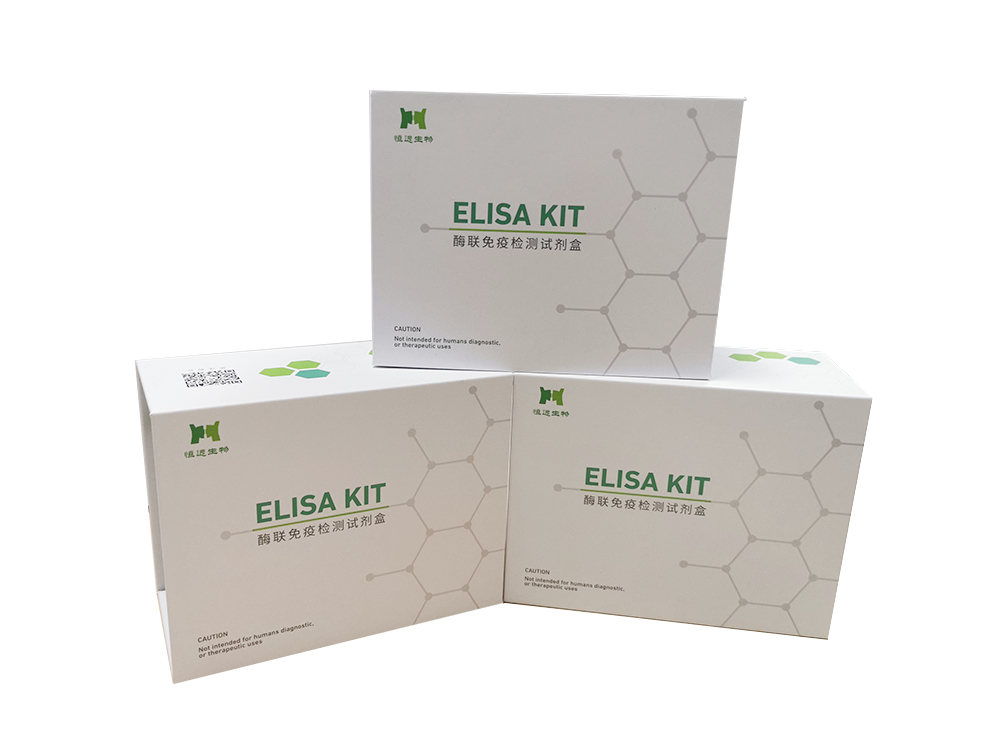Welcome to choose us, Shanghai Hengyuan Biological Technology Co., Ltd.!Free service hotline:400-0899-208
Language:CH Security check
- Location:
- 首页>
- News>
- Company news>
- ELISA false negative...
Company news
ELISA false negative false positive, nothing more
ELISA (enzyme-linked immunosorbent assay) is a commonly used solid-phase enzyme immunoassay method, which is widely used in the determination of various antigens and antibodies.
However, there are many influencing factors in ELISA determination, and there are certain technical requirements in its operation. In addition to normal reaction, sometimes some wrong results (i.e. false positive or false negative results) can be seen in clinical test. The main reasons for the incorrect results of ELISA were as follows
② Reagent factor;
In this paper, the influence of specimen factors on ELISA was discussed as follows

Serum is the most commonly used ELISA specimen. Plasma can be regarded as the same sample as serum. The false positive and false negative results caused by samples are mainly caused by interfering substances, which can be divided into endogenous substances and exogenous substances.
Endogenous substances
1. Rheumatoid factor
IgM and IgG rheumatoid factor (RF) in human serum can bind to capture antibody in ELISA system and FC segment of enzyme labeled secondary antibody directly, leading to false positive.
2. Complement
In the process of solid phase primary antibody and labeled secondary antibody in ELISA system, the antibody molecules are altered, and the binding site of complement C1q in FC segment is exposed, so that C1q can connect the two antibodies, resulting in false positive.
3. Heterophilic antibody
Human serum contains natural heterophilic antibodies that can bind to Ig (s) of rodents (such as mice, etc.), which can connect the first and second antibodies in ELISA system, and also cause false positive.
4. Autoantibodies to target antigens
Sometimes autoantibodies against target antigens such as thyroglobulin and insulin can form complexes with target antigens, which can interfere with the results of antigen antibody determination in ELISA.
5. Iatrogenic induced anti mouse Ig (s) antibody
In addition, anti mouse Ig (s) antibodies can also be produced in patients bitten by rodents. All of these patients were false positive by ELISA.
6. Cross reactive substances
Digoxin like and AFP like substances are cross reactive with target antigens. However, if the cross antigenic determinant is the corresponding target determinant of the monoclonal antibody, the false positive result will also appear.
7. Others
The influence of other components in the sample, such as high serum lipid, bilirubin, hemoglobin and blood viscosity, can interfere with the results of ELISA.

Exogenous substances
Exogenous substances are often caused by improper collection and storage of blood samples for ELISA determination. Such as hemolysis, bacterial contamination, long-term storage, incomplete agglutination and additives in blood collection vessels.
1. Hemolysis
Hemolysis caused by various human factors can release a large amount of hemoglobin with peroxidase activity when the red blood cells are destroyed and dissolved. In the ELISA with horseradish peroxidase as the marker, it will lead to nonspecific color development and interfere with the determination results.
2. The samples were contaminated by bacteria
Because the bacteria may contain endogenous horseradish peroxidase, the samples contaminated by bacteria can produce nonspecific color reaction just like hemolytic samples and interfere with the determination results.
3. Improper preservation of specimens
IgG in serum can polymerize into polymer and AFP can form dimer in the samples stored in refrigerator for a long time. In indirect ELISA, the background is too deep and even false positive;
If the specimen is kept for a long time (such as more than one day), sometimes the immune activity of antigen or antibody is weakened, and false negative can also appear.
4. Incomplete agglutination
In clinical laboratory work, sometimes in order to gain time for rapid detection, often in the blood has not begun to coagulate that is forced centrifugation separation of serum, at this time there is still a part of fibrinogen in the serum, ELISA Fibrin block can be formed in the process of determination, which is easy to cause false positive results; in this case, the blood coagulation is complete and there is no fibrinogen in the serum, so the re examination result becomes negative.
5. The influence of the substance added in the specimen tube
Anticoagulants (such as heparin, EDTA), enzyme inhibitors (such as NaN3 can inhibit the activity of horseradish peroxidase in the ELISA system) and separation gel for rapid separation of serum, etc. all of these have interference effects on ELISA determination.
Shanghai Hengyuan biological (a professional enzyme-linked immunosorbent assay kit manufacturer) provides high-sensitivity kits. Its ELISA Kit not only has rich detection indicators, but also can customize the detection range according to the experimental needs, and provides outsourcing and free surrogate testing services.
Related News
- Notice of New Year's Day Holiday for Hengyuan Biology in 2024
- Warm winter special, right here in Tsunetō!
- Hengyuan Biology: This Month Gao Min Elisa kit hot recommendations
- Hengyuan Biology | November new Elisa kit SCI literature, IF total score of 125.8!
- Hengyuan Biology: Plant Elisa kit new product index recommendation
- Hengyuan Biological | added ELISA kit SCI literature in October,IF total score 63.19!
News
The Latest News
- Notice of New Year's Day Holiday for Hengyuan Biology in 2024
- Explanation of references cited in the earthworm 8-hydroxydeoxyguanosine (8-OHdG) ELISA kit
- Warm winter special, right here in Tsunetō!
- Constant biology | those things that fit the ELISA curve
- Hengyuan Biology: This Month Gao Min Elisa kit hot recommendations
- Hengyuan Biology | November new Elisa kit SCI literature, IF total score of 125.8!
- How to collect high quality animal serum?
- Changyuan Biology | Inflammatory factor-interleukin-6
- Hengyuan Biology: Plant Elisa kit new product index recommendation

